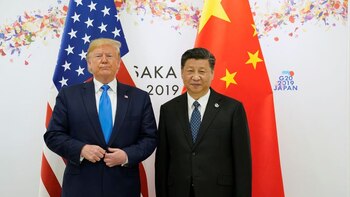
The Electric Reform presented by President Andrés Manuel López Obrador, which proposes changes to Constitutional Articles 25, 27 and 28, was presented since September 2021 and among its main objectives are that the government have full control of lithium, as is the case with oil, in addition to imposing a regulatory framework that ensures to the Federal Electricity Commission (CFE) the preferential order for the generation and sale of electricity in the country.
The initiative clearly states that this is a counter-reform to that published on December 20, 2013, during the six-year term of Enrique Peña Nieto, under the argument that the real objective was the disappearance of the State energy companies.
The AMLO initiative justifies the need for a new reform because it considers that the CFE generation park was fragmented into six autonomous companies to ensure its disappearance.
In addition, he accuses that this State company has only one public budget and must distribute it among the six entities without the CEO, in this case Manuel Bartlett, controlling its administration but must still be held accountable for each subsidiary.

For the government of the Fourth Transformation, the CFE loses 215 billion pesos annually from unshipped energy and an additional 222,000 pesos from the purchase of energy from the private sector.
He says that the 2013 Reform violates its own rules and considers it unsustainable because “private groups are historically more attentive to their interests and profitability and do not meet national demand and their rate of growth.”
According to the initiative presented by López Obrador, the intention is to reverse the Reform promoted by Enrique Peña Nieto in 2013 and that electricity is now a strategic area in charge of the State, and through the CFE it will preserve energy self-sufficiency. Therefore, this company would be guaranteed at least 54% of the total production and distribution for all economic and social activity.
Thus, the initiative proposes that “The public sector shall be in charge, exclusively, of the strategic areas indicated in article 28, fourth paragraph of the Constitution, with the Federal Government always maintaining ownership and control over State agencies and decentralized agencies that may be established.”

In its reform proposal, the federal government intends to have powers over lithium as it currently does over oil and deny concessions for the exploitation of this mineral, and its extraction will be exclusively reserved for State companies or, where appropriate, will implement mechanisms similar to oil rounds to allocate contracts and deposits limited to private ones provided that they divide the profits with the Mexican State.
To this end, it seeks to modify article 27 so that “The public sector shall be in charge, exclusively, of the strategic areas indicated in article 28, fourth paragraph of the Constitution, while the Federal Government always maintains ownership and control over State agencies and decentralized agencies that, where appropriate, establish”.
With the new wording, the federal government would have “the power to establish national reserves and eliminate them” and emphasizes that “in the case of lithium and other minerals considered strategic for the energy transition, no concessions will be granted”.
For the administration of Q4, the functions that the State exercises on lithium, nuclear power generation and exploration as well as oil extraction shall not be considered a monopoly.

In this regard, the former Minister of the Interior and pre-presidential candidate, Santiago Creel, considered that the workers' government is encouraging a false debate on lithium because the current Constitution already states in article 27 that everything that is underground already belongs to the nation.
Last Monday, President López Obrador said that even if his Electricity reform initiative cannot be approved, he will try to preserve control over lithium through an amendment to the Mining Law and reiterated that his government will not grant concessions to any private company in that sector.
After it was planned to bring to the plenary session of the Chamber of Deputies the ruling on the Electricity Reform sent by the President of the Republic this Tuesday, the opposition deputies decided to spend the night in the legislative precinct to avoid the blockade that Morena's followers intended to implement this day.
For this reason, the Morena leadership decided to change the session last minute to next Sunday, April 17, in a maneuver that political analysts consider is intended to hold the vote with a lower quorum and thus have a better chance of achieving a qualified majority with its Green Party and PT allies.
KEEP READING:
Últimas Noticias
Debanhi Escobar: they secured the motel where she was found lifeless in a cistern
Members of the Specialized Prosecutor's Office in Nuevo León secured the Nueva Castilla Motel as part of the investigations into the case

The oldest person in the world died at the age of 119
Kane Tanaka lived in Japan. She was born six months earlier than George Orwell, the same year that the Wright brothers first flew, and Marie Curie became the first woman to win a Nobel Prize

Macabre find in CDMX: they left a body bagged and tied in a taxi
The body was left in the back seats of the car. It was covered with black bags and tied with industrial tape
The eagles of America will face Manchester City in a duel of legends. Here are the details
The top Mexican football champion will play a match with Pep Guardiola's squad in the Lone Star Cup

Why is it good to bring dogs out to know the world when they are puppies
A so-called protection against the spread of diseases threatens the integral development of dogs




